CITF Scientific Meeting
Plenary session presentations
We held the CITF Scientific Meeting in Vancouver, B.C., in early March 2023. The goal was to share results from CITF-funded studies and to discuss lessons learned as well as the way forward. Here, we share with you the six Plenary session presentations, as well as a presentation on the CITF Databank.

PLENARY SESSION 1:
Perils and promises of science in pandemics
Particularly during a public health emergency, it is important that the scientific community be engaged and consulted regarding policies and procedures as early as possible. During the pandemic, scientists have played leading roles in addressing problems and proposing solutions. Understanding the science is undeniably key to contain a pandemic, but science is complex, changing, and sometimes incomplete, bringing into sharp relief the need for clear, transparent, and effective communication. With the scientific literature burgeoning with new findings, timely and critical review of the evidence poses challenges. Addressing the promise of science means acknowledging its perils and striving to counter them.

MODERATOR
Dr. Catherine Hankins
Former CITF co-Chair, Professor of Public and Population Health at McGill University
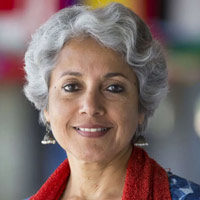
Dr. Soumya Swaminathan
Chief Scientist, World Health Organization (WHO)
M S Swaminathan Research Foundation
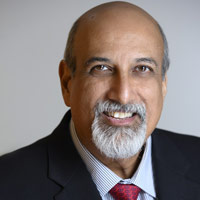
Prof. Salim Abdool Karim
Director, Centre For AIDS Programme of Research in South Africa (CAPRISA)
PLENARY SESSION 2:
Public Health and the Pandemic
For over three years, public health officials worldwide have faced more challenges than any of their predecessors, managing the SARS-CoV-2 pandemic in an age of globalism, free speech, and social media. Federal, provincial, and territorial public health agencies have played a central leadership role in making sensitive, timely, and informed decisions to protect Canadians from COVID-19 and communicating to the public about the unfolding situation, including crucial measures to reduce transmission of SARS-CoV-2. In this session, we heard directly from individuals who had important roles as Chief Medical Officers of Health at various times through the COVID-19 pandemic. This session informed participants about some of the key issues and challenges that had to be addressed as the SARS-CoV-2 pandemic evolved, lessons learned, and potential future approaches.

MODERATOR
Dr. James Talbot
Adjunct Professor of Public Health at the University of Alberta, Former Chief Medical Officer of Health for
Alberta and Nunavut
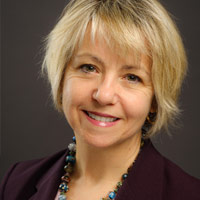
Dr. Bonnie Henry
Provincial Health Officer, Ministry of Health, British Columbia
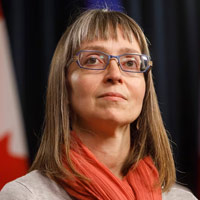
Dr. Deena Hinshaw
Associate Clinical Professor, University of Alberta
Deputy Provincial Officer, British Columbia

Dr. Kami Kandola
Chief Public Health Officer, Northwest Territories Health and Social Services Authority
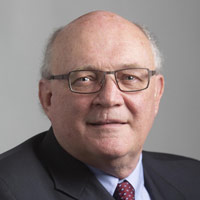
Dr. Robert Strang
Chief Medical Officer of Health, Nova Scotia Department of Health and Wellness
PLENARY SESSION 3:
Equity in pandemic research
The pandemic has demonstrated fault lines and inequities in society that place some populations at increased risk of SARS-CoV-2 infections and serious outcomes from COVID-19. Ultimately, however, we all depend upon one another to control the spread of infectious diseases. Incorporating a health equity approach to pandemic preparedness, response, and recovery will be to everyone’s benefit. Such an approach depends on leadership at all levels of government, the commitment of all Canadians, and support from a strong public health system.
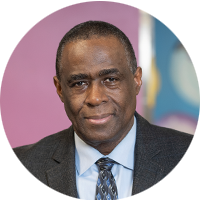
MODERATOR
Dr. Upton Allen
Professor, Department of Paediatrics and Institute of Health Policy Management and Evaluation, University of Toronto;
Chief and Consultant, Division of Infectious Diseases, The Hospital for Sick Children (SickKids)
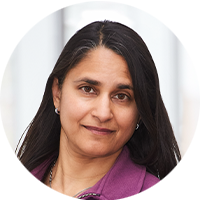
Dr. Sonia Anand
Professor of Medicine and Epidemiology, McMaster University
Vascular Medicine Specialist, Hamilton Health Sciences
Associate Chair Equity, Diversity, Department of Medicine, McMaster
Senior Scientist, Population Health Research Institute

Dr. Dawn Bowdish
Professor, McMaster University
Canada Research Chair in Aging & Immunity, McMaster University

Dr. Nadine Kronfli
Assistant Professor, McGill University
Department of Medicine, Division of Infectious Diseases and Chronic Viral Illness Service, McGill University Health Centre
Infectious Diseases and Immunity in Global Health Program, Research Institute of the McGill University Health Centre
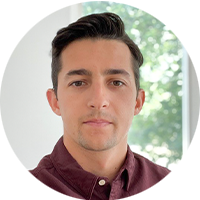
Dr. Hudson Reddon
Postdoctoral Research Fellow, Department of Medicine, University of British Columbia
BC Centre on Substance Use
PLENARY SESSION 4:
Global/population level pandemic surveillance and diagnostics
Timely dissemination of public health surveillance data to decision-makers has been vital to guide policy and strategic planning in the interest of protecting the health of Canadians. Public health surveillance is also at the heart of infection control and prevention efforts, including prioritization of the most vulnerable populations. The construction and refinement of a pan-Canadian surveillance system operating in an international context is, therefore, an ever-present goal to enable an effective public health system operating in the face of global threats.

MODERATOR
Dr. David Buckeridge
Scientific Lead, Data Management & Analysis, CITF;
Professor, Department of Epidemiology and Biostatistics, School of Population and Global Health, McGill University

Dr. Rahul Arora
Adjunct Lecturer, Department of Community Health Sciences, University of Calgary
Doctoral Researcher and Rhodes Scholar, Institute of Biomedical Engineering, University of Oxford

Dr. Sheila O’Brien
Adjunct Professor, School of Epidemiology & Public Health, University of Ottawa
Associate Director, Epidemiology and Surveillance, Canadian Blood Services

Dr. John Kim
Chief of the Public Health Agency’s National HIV Reference Services (NLHRS) Laboratory at the National Microbiology Laboratory
Public Health Agency of Canada
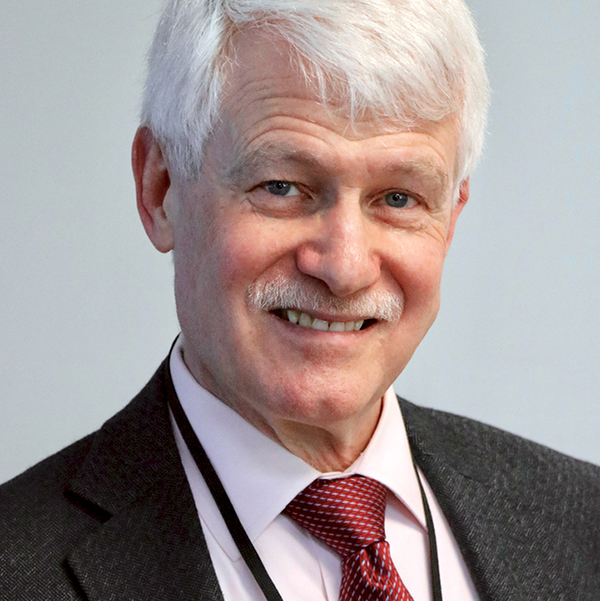
Dr. Mel Krajden
Professor, Pathology and Laboratory Medicine, University of British Columbia
Medical Director of the BC Centre for Disease Control Public Health Laboratory

Dr. Doug Manuel
Senior Scientist, Ottawa Hospital Research Institute
Professor, Department of Epidemiology and Community Medicine
University of Ottawa
PLENARY SESSION 5:
Correlates of protection and precision immunology
Researchers around the world have made significant advances in characterising the immune response to SARS-CoV-2 infection. Not only is this important in understanding the key drivers of severe disease, but these advances have been essential for vaccine development. Strong evidence shows that humoral and cell-mediated immunity contribute to remarkable protection against severe disease. Data also show that hybrid immunity confers better protection than vaccine-induced immunity alone.

MODERATOR
Dr. Jim Kellner
Consultant in Pediatric Infectious Diseases and Professor, Departments of Pediatrics, Community Health Sciences,
and Microbiology, Immunology & Infectious Diseases, Cumming School of Medicine, University of Calgary and Calgary Zone,
Alberta Health Services
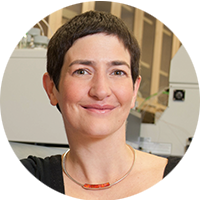
Prof. Anne-Claude Gingras
Professor, Dept. of Molecular Genetics, University of Toronto
Senior investigator, Lunenfeld-Tanenbaum Research Institute

Dr. Alessandro Sette
Professor, La Jolla Institute For Immunology
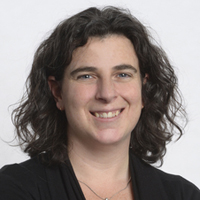
Prof. Jane Heffernan
Professor of Mathematics & Statistics, York University

Dr. Matthew Tunis
NACI Executive Secretary
Executive Secretary to the National Advisory Committee on Immunization
Public Health Agency of Canada
PLENARY SESSION 6:
How to engage the public during a pandemic
Community engagement is essential to containing a public health emergency and it strengthens communities, providing a base for future actions to tackle underlying inequalities. Practical actions include forming long-term partnerships between public service providers and community-based organizations, giving tangible support to volunteers, and involving communities in research design and conduct. It is also imperative to reach out to the public via media platforms, including newspapers and social media, in order to disseminate information quickly and transparently.

MODERATOR
Dr. Catherine Hankins
Former CITF co-Chair, Professor of Public and Population Health at McGill University
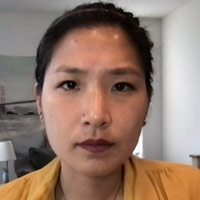
Katherine Wu
Journalist, The Atlantic

Mr. André Picard
Journalist, The Globe and Mail
CITF Databank presentation
The CITF launched the CITF Databank to further enhance the impact of its funded studies. Canadian and international researchers can request access to the data held in the CITF Databank free of charge. The Databank will store archived and harmonized data from over 70 epidemiological and immunological studies of COVID-19 in Canada. This session further explained the CITF Databank and answered questions.

Dr. David Buckeridge
Scientific Lead, Data Management & Analysis, CITF
Professor, Department of Epidemiology and Biostatistics, School of Population and Global Health, McGill University

